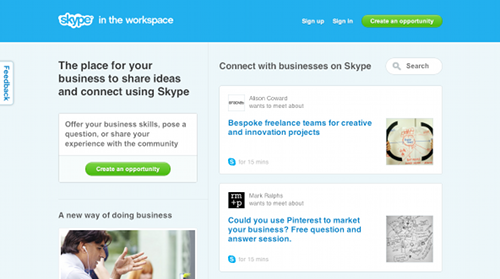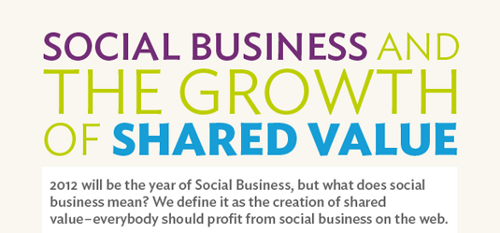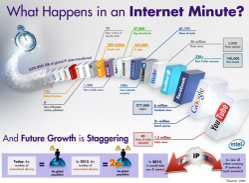Blog posts tagged social media
Are your staff taking a statuscation?
 Back in the day — as long as three or maybe four years ago — a two-week holiday was a two-week holiday.
Back in the day — as long as three or maybe four years ago — a two-week holiday was a two-week holiday.
We’d fly off somewhere exciting and our colleagues wouldn’t hear from us until we returned 14 days later, with a fading tan and some blurry photos.
But if new research from travel firm The Flash Pack is to be believed, in 2014 the two-week holiday is changing. Social media sites are helping us stretch and transform it into a two-month ‘statuscation’.
According to the survey of 1,000 people, 84% of Brits regularly use social media sites like Facebook, Twitter and Instagram to elongate the effects of their breaks abroad.
Apparently, a statuscation doesn’t just involve bragging about your amazing holiday while you’re away, or once you’ve returned.
The survey found nearly 50% of people claim their statuscation starts when the booking is made, by posting Facebook updates and photos of the tickets when they arrive.
A third of all travellers can’t resist uploading pictures of their airport departure board, the runway and even the view out of the plane window.
Nearly 65% of people say they share images and updates with friends and family while they’re away. And on their return, 37% claim they keep the holiday vibe going by connecting with newfound holiday companions online and then sharing photos and memories.
Life coach Fiona Harrold reckons taking a statuscation can have a positive impact on holidaymakers:
“Why should the positive and beneficial effects of our trips abroad evaporate as soon as we touch down? This new breed of ‘statuscationers’ have found a superb, efficient and cheap way to keep that positivity going through, almost to the next holiday”
But strangely, she doesn’t seem to have commented on the effects your statuscation might have on others.
We can’t help thinking it’s less likely to spread the feel-good factor of your holiday and more likely to generate irritation and jealousy.
On the whole then, maybe statuscations are best kept outside of the workplace.
Skype's version of online dating for business

The Skype in the Workspace homepage.
Skype recently announced a new service, Skype in the Workspace. The online communications firm - which was bought by Microsoft in 2011 - reckons its platform is an ideal way for small businesses and entrepreneurs to find potential partners and suppliers.
Signing up is easy and takes less than five minutes. You just need to enter a little information about yourself and your business. You can then create opportunities for people to connect with you by saying what subject you want to talk about. Alternatively, you can search for interesting opportunities yourself.
Make new connections
It seems a bit like online dating for business - you search for what you're looking for, and then you can use Skype to chat to people who offer it. Being able to make instant contact is a big part of the service's appeal, because it encourages new connections and communication.
Indeed, Skype believes firms can use the service to demonstrate products to a wider audience. Users can also book appointments with potential customers or suppliers, and keep track of these with a meeting notification service. When an opportunity is over, users can instantly give testimonials on the product or service offered.
Not much happening
At least, that's the theory. At the moment, Skype in the Workspace seems somewhat sparsely populated. My search for 'accountant' returned one result, while 'lawyer' returned three, all located in the US. Searches for things like 'web development', 'marketing' or 'design' return lots more possibilities, although the quality varies quite considerably.
It's early days for Skype in the Workspace yet, and businesses who've had success in finding partners and customers through channels like Twitter and Facebook might well appreciate it as another string to their bow.
The international dimension is interesting too. Alison Coward is owner of the London creative collaboration agency, Bracket, and reckons the service has extended her reach considerably.
She says: "With Skype in the workspace, I am visible to quality leads without even leaving the office. With no travel time to contend with, it’s also now far more feasible for me to grow my business outside of the UK into Europe and the US."
It's too early to say whether Skype in the Workspace is really going to take off. My gut feeling is it's more likely to become a niche channel than a broad tool like Facebook. But as it only takes a couple of minutes to create an opportunity, what's to stop you trying it?
Friday Donut tip: be careful what you share

Learn when to keep it zipped. (Image: Flickr user stev.ie)
The power and usefulness of social media has been demonstrated time and time again. In 2012, your business needs a good reason not to start tweeting or getting friendly on Facebook.
But social media makes it easy to share too much. From what you had for breakfast to edgy jokes, some things are best kept to yourself. Just ask Charlie Sheen, who mistakenly tweeted his mobile phone number to about five million people.
We recently stumbled across the Need a debit card Twitter account, which retweets photos of people's debit cards in an effort to highlight the security risk of posting these details online. And it inspired us to come up with these four tips to keep your tweets safe:
- Don't post images containing sensitive information. As well as your debit and credit cards, keep an eye out for screenshots containing private information, photos of letters and other documents, and private email addresses or telephone numbers.
- Don't publicise holidays or absences. If your office is empty for the day because you've all gone on the annual outing, that's the ideal time for crooks to strike. And it really does happen - a small survey of criminals suggested Facebook and Twitter offer rich pickings.
- Don't get into public arguments. Nobody ever wins online arguments. That was true before social media existed and it's true today. If you're involved in a discussion and it's getting out of hand, step away from the keyboard before the red mist descends. It's never pretty to see a professional company get embroiled in a petty online dispute.
- Don't bash your competitors. It's undignified and it suggests you're seriously worried about the competition. You know that old saying, 'if you can't say something nice then don't say anything'? It definitely applies in this situation.
Finally, remember the golden rule of running your company's social media accounts. If you're not sure whether you should post something, it's usually best not to. There are plenty of other things you can share without risking anything.
Previous Friday tips:
Here's what happens in an internet minute
It’s a mistake to stop and think about the internet for too long. You’ll struggle to grasp the sheer size of the thing, its mind-boggling complexity and the rate at which it changes.
Still, it the internet is fascinating. And that’s why this infographic from Intel caught our eye. It gives you some idea of what happens online in a single minute.
While you’ve been reading this, a score of people have had their identities stolen, hundreds have signed up to social network LinkedIn and there have been 100,000 new Tweets. Bonkers.
Alt text: Infographic – what happens in an internet minute
Just to put some of that into context:
- The 639,800GB of data transferred is equivalent to sending about 135,000 full-length DVD films across the internet.
- Those 6 million Facebook views sound like an awful lot – but then you have to remember that worldwide, one in every nine people has a Facebook account.
- The number of internet-connected devices is set to soar over the next few years as cars, TVs and even kitchen appliances all get their own connections.
While there perhaps aren’t any hard and fast conclusions for your business to draw from this, it certainly highlights some of the opportunities out there. With 1,300 new mobile internet users every minute, having a mobile website makes sense. And with 1.3 million videos watched, perhaps your business should have a YouTube channel.
You know, I reckon this internet thing might just be here to stay...
- Social media – not as new as you think?
- Internet speed checker – test your connection
- Tech trends to watch in 2012
Social media isn't as new as you think
You can’t move round here for social media experts and social marketing agencies. Facebook, Twitter and their ilk are big business, because companies see them as vital new marketing channels.
It’s true that social media has had a huge impact on how companies communicate and interact with new and existing customers. If your business isn’t already on Facebook, there’s a good chance you’re thinking about it.
Social business is nothing new
But something’s got lost in the in the rush to claim this new, technological territory. Caught up in all the excitement of becoming a ‘social business’, many companies seem to have forgotten that there’s always been a social element to running a company.
Luckily, Global Dawn (who say they’ve created the first comprehensive ‘social business engine’, whatever that is) have put together an infographic showing how social business has grown and changed through the years.
Click the image below to expand and let us know what you think of it in the comments – and give us your examples of social businesses from before Facebook existed.

2012: great for Google+, group buying and gadgets

Will 2012 be the year of Google+ for business?
Guessing what’s in store is traditional at the start of a New Year. And so I’ve been looking ahead to consider what 2012 might have hold for businesses and the way they use technology. Here are my predictions.
Considerable consumerisation
Consumerisation of IT is going to become even more widespread in 2012. This is the migration of consumer technology – like tablet computers and social networks – into the world of work.
With almost half the UK population using smart phones and tablet computers becoming increasingly popular, demand to access business content on a range of devices will grow exponentially. The line between consumer and business use of technology will become increasingly blurred as workers expect to be able to access work email on their personal devices - and vice-versa.
Google+ growth
We’ll see an increased adoption of Google+ as a new way for businesses to reach key customer groups. Facebook is not always the right marketing channel for a business but Google+ has the potential to bridge the gap between social and professional.
Small businesses have the flexibility to be amongst the early adopters of new tools like Google+ and so should capitalise on the opportunities they can bring.
Happy huddling
If 2011 was all about the growing popularity of discount sites like Groupon and LivingSocial, 2012 will see more and more companies looking to services like Huddlebuy - the small business equivalent of Groupon.
These services enable small businesses to boost their presence, acquire new customers and ultimately increase sales. The offers are widely promoted and generally very well received - so they can provide a great opportunity for small businesses.
Finally, the use of QR codes will continue to grow. We’re already seeing these pop up everywhere: in magazines, on groceries, adverts and so on. They provide yet another avenue for customers to interact with a business, giving smaller companies a voice in crowded markets.
More articles looking ahead:
- Tech trends for 2012
- Changing technology that could influence your IT strategy
- How to provide the IT your staff expect
Andrew Miller is technology marketing consultant at Dell.




